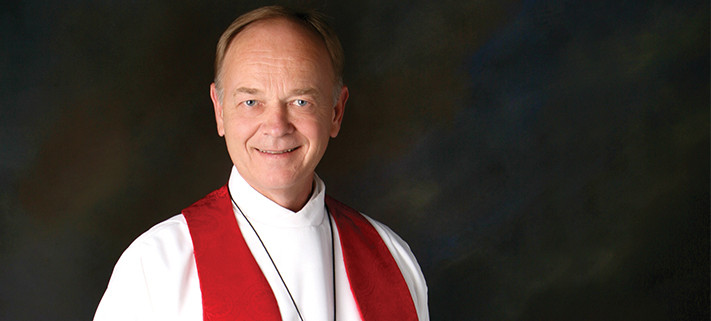Don’t give thanks
“God, I thank you that I am not like other men—robbers, evildoers, adulterers—or even like this tax collector.” Luke 18:11
Steven J. Pagels
Did the title of this devotion grab your attention? Maybe you were thinking to yourself, It must be a typo or Whoever proofreads these articles needs to do a better job of editing. Don’t give thanks? That doesn’t make sense. That advice doesn’t agree with the many Bible passages that encourage Christians to thank God for their many God-given blessings.
Actually it isn’t a typo, and those words do make sense if you look at them in the context of Luke 18. Jesus found himself in a gathering of people who thought very highly of themselves and very little of others. To take these self-righteous people down a notch, the Lord told them a parable about two men. One was a Pharisee, and the other was a tax collector.
WITH A PROUD HEART
The Pharisee was a respected religious leader. People looked up to him, and probably plenty of people were looking at him when he stood up in the temple and began to pray: “God, I thank you . . . ” It was such a good start, a good beginning to any prayer a believer might pray. But as the Pharisee continued, the self-righteous words that came from his lips revealed that something was wrong inside his heart.
“God, I thank you that I am not like other men—robbers, evil doers, adulterers—or even like this tax collector.” The Pharisee wasn’t really interested in giving thanks to God. He was more concerned about drawing attention to himself, to how good he was, to how much better he was than all the wicked people in the world.
My guess is that you have never prayed a prayer like that, that you would never imagine praying a prayer like that. I wouldn’t either. But we don’t have to repeat the Pharisee’s words to have the same kind of self-righteous attitude. Instead of letting God know how good we are in our prayers, we can communicate the same idea in the prayers we choose not to pray. Why should I be thankful? I had to work hard to get the things I have. It was my effort, my determination, the decisions I made that got me where I am today.
BUT WITH A HUMBLE HEART
The other man in the parable wasn’t interested in telling God how good he was. He couldn’t even bring himself to look up to heaven. Instead he beat his breast and bowed his head and pleaded: “God, have mercy on me, a sinner.” What a dramatic contrast to the Pharisee’s prayer, and what a beautiful prayer it was!
The tax collector didn’t get into specifics, and he didn’t have to. He knew that God was aware of his many sins. He knew that he had no right to ask God for anything, but he did anyway. He asked God to be merciful, and God was. At the end of the parable Jesus explained that this man went home with his sins forgiven and his head held high.
The best part about this story is that it’s not just a story. It’s a true story. It is our story. We have a merciful God who lifts us up when we are weighed down by guilt. We have a living Savior who has forgiven all our sins. Because we are so blessed, because God has given us so much, we will do what comes naturally. We will do what grateful Christians do. With our lips and with our lives we will say, “Thank you.”
Contributing editor Steven Pagels is pastor at St. Matthew’s, Oconomowoc, Wisconsin.
SUBMIT YOUR STORY
Do you have a manuscript, idea, or story from your own life you’d like to share for use in Forward in Christ or on wels.net? Use our online form to share it to our editorial office for consideration.
SUBSCRIBE TO FORWARD IN CHRIST
Get inspirational stories, spiritual help, and synod news from Forward in Christ every month. Print and digital subscriptions are available from Northwestern Publishing House.
Author: Steven J. Pagels
Volume 101, Number 11
Issue: November 2014
Copyrighted by WELS Forward in Christ © 2021
Forward in Christ grants permission for any original article (not a reprint) to be printed for use in a WELS church, school, or organization, provided that it is distributed free and indicate Forward in Christ as the source. Images may not be reproduced except in the context of its article. Contact us







